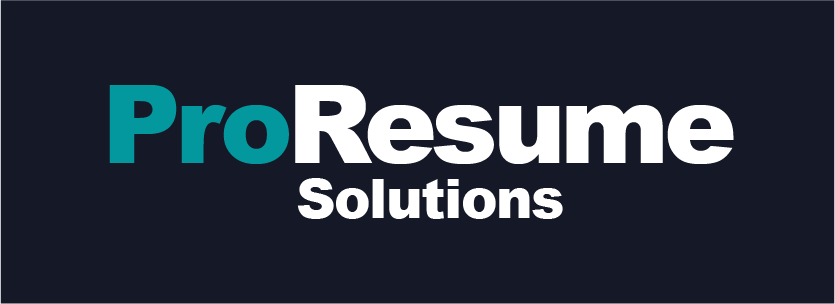Soft skills are a set of personal attributes and interpersonal skills that complement hard, technical skills. They influence how we interact with people and are important in just about every job. These are traits which make us more employable and valuable to an organization. By definition, soft skills are also less tangible, amorphous, and more personal – much like the intricacies of human interaction. There is no single list of soft skills as such, but some consensus has been built around what skills employers would like to see in their employees. Here are the top 10 soft skills you want to have in 2023 and different ways you can show them on a resume, in an interview, or on the job.
1. Creative Problem Solving
Creative problem solving is one of the most important soft skills employers want to see in 2023. Creative problem solving is a non-routine process of identifying new ways to design, develop, and deliver solutions. It’s an essential skill for all employees to have, especially those who work in teams, as it helps them come up with creative solutions to problems that arise.
Creative problem solving is not something that you can teach in a classroom or read about in a book. It’s a skill that needs to be developed through experience and practice. In order to show creative problem solving on your resume, you need to be able to demonstrate how you’ve used it before in your past jobs or internships.
For example, demonstrate how you came up with unique solutions to problems in past positions. This can be researching new tools to automate a manual process, or taking initiative to find a new vendor that helps cut costs. Whatever it is, you should showcase how your problem-solving skills made an impact on the organization.
2. Innovative Mindset
An innovative mindset is the ability to think outside the box, approaching work and problems in new ways. It’s about having a deep understanding of what you’re doing and being able to apply that knowledge in an unconventional manner.
Innovation isn’t just about coming up with ideas, it’s also about implementing them. If you have an innovative mindset, you can take an idea, evaluate its effectiveness, and determine how it can be improved upon.
You can show your innovative mindset by discussing past projects where you’ve had to work on a team and come up with solutions for issues or problems. You could also talk about how you’ve approached learning new skills or concepts that were new to you.
3. Growth Oriented
A growth-oriented mindset means having the ability to learn, adapt, and grow in response to new situations and challenges. Employers want people who can apply their existing knowledge and skills to new situations and challenges, as well as those who can quickly understand new information and adapt to it. It can also mean your abilty to see the big picture and have the foresight to understand how your contributions today may impact the company tomorrow as well as possessing the flexibility to make necessary changes to achieve those future goals.
You can show this by being open to learning new things, taking on new challenges, and being able to change your opinions with new information.
4. Communication
Almost every job posting these days places an emphasis on having good communication skills. So, what does this really mean?
Communication is an essential skill for any employee to possess. Whether you are a customer service professional or an IT professional, you need to be able to communicate effectively with others. It’s not enough just to have good communication skills; you also need to be able to demonstrate them in the workplace.
Here are some tips for demonstrating your communication skills:
- Be clear and concise when speaking with others. Don’t ramble on about things that don’t matter or use complex jargon that will confuse people.
- Listen carefully when others speak, and give them your full attention while they’re talking so they feel like they’re being heard.
- Use body language that shows you’re engaged during conversations with other people, such as nodding your head or leaning forward slightly when someone else is speaking.
5. Time Management
Time management is one of the most important soft skills to develop. Getting things done on time, meeting deadlines, and staying organized can mean the difference between success and failure at work. It’s also a skill that you can learn with practice.
The best way to show employers you have good time management skills is to demonstrate that you’re an organized person who knows how to set priorities and stick to them.
If you’re applying for a position in sales, marketing, or customer service, it’s helpful if you can show that you have experience with scheduling appointments, meetings, and other events.
If you’re applying for a job in IT or engineering, it’s helpful if you can demonstrate that you know how to manage your time by setting deadlines on projects and meeting those deadlines.
You may also be asked about how often you stay late at work or come in earlier than usual in order to finish projects on time or meet deadlines. When answering this question, be sure to mention any instances where it was necessary for you to do so in order to get something done — but only if it was truly necessary (i.e., don’t make up stories).
6. Extreme Accountability – the New ‘Leadership Skill’
According to a survey of more than 1,000 employers by HireRight, one of the most important skills is extreme accountability — meaning high standards and a willingness to do whatever it takes to meet those standards. The survey found that 95 percent of employers said they look for extreme accountability in candidates, while only 33 percent said they have it in their current employees.
Accountability means “being personally responsible for getting the job done,” said Robert E. Quinn Jr., an executive coach who specializes in leadership development. “It’s about being able to take ownership of things and not blaming others for mistakes or problems.”
Extreme accountability is not about being pushy or aggressive but rather about being proactive and paying attention to details so that tasks are completed accurately and on time. Employers want people who take initiative without being asked, who follow through on assignments without having to be asked twice and who don’t make excuses for failing to accomplish tasks as promised — even when things go wrong beyond their control.
Here are some ways to show extreme accountability:
- Take ownership of your work and ensuring it is completed correctly.
- Offer solutions when there are problems instead of making excuses and blaming others.
- Admit when you are wrong and apologizing when appropriate – not letting your ego get in the way of the goal!
7. Emotional Intelligence
Emotional intelligence (EQ) is the ability to perceive, control and evaluate emotions. It’s a skill that helps us respond effectively to the challenges we encounter in life.
In today’s workplace, emotional intelligence is valued more than ever before. According to research conducted by the Center for Talent Innovation, EQ has a stronger correlation with performance than traditional IQ. This makes sense when you consider that EQ skills are essential to many of the jobs in today’s economy, especially those that require working collaboratively with others.
One main way to demonstrate high EQ is through self awareness. Being self-aware means recognizing your emotions and understanding what they mean for your behavior at any given time. It also means recognizing when your emotions are influencing your judgment or decision making, which makes it easier to make rational choices that align with what you want in life (not just what feels good). As an example, if you feel angry at someone but know they don’t deserve it, then this gives you an opportunity to take a step back from the situation and respond appropriately rather than reacting emotionally out of anger.
8. Active Listening
Listening is one of the most important soft skills you can have, and employers want to see it in their employees. But what exactly does it mean to listen?
Active listening is a technique used by speakers and listeners to show they are paying attention and understanding what others are saying during conversations. The goal of active listening is to ensure that everyone involved understands each other’s points.
Here are some tips on how you can improve your active listening skills:
- Be present and engaged with the speaker.
- Show interest through body language.
- Paraphrase what you heard (this lets them know you understand).
- Ask questions if you don’t understand something or didn’t hear correctly (be respectful!)
9. Collaboration
Collaboration is often confused with teamwork, but there are subtle differences between the two. Collaboration involves working together on a project or task to achieve a common goal, whereas teamwork simply refers to group dynamics. It’s not necessarily about agreeing on everything; it’s about finding common ground so that everyone wins.
Being able to collaborate on projects or assignments shows employers that you put the company’s goals first. One way to demonstrate this is through compromise. You may not agree with all parties on every issue, but if you can compromise on some things then you have demonstrated your ability to collaborate effectively.
10. Diversity & Inclusion
As workplaces become more global, diversity and inclusion are two of the most important soft skills you can have in your career. But what do they mean exactly?
Diversity is about recognizing and understanding differences between individuals and groups of people. It involves valuing people’s differences, learning from them, appreciating them and making sure they’re represented in your workplace or organization.
Inclusion means creating an environment where people from different backgrounds feel welcome and valued as part of the team — regardless of their culture, race or ethnicity, gender identity or sexual orientation (amongst others).
Here are three ways to show diversity and inclusion as a skill:
- You’ve worked with diverse groups of people before (for example, international students, people from different cultures).
- You’ve successfully managed a team of people with different backgrounds — for example, an offshore team or vendors/suppliers in another country.
- You’re comfortable working with people who are different from yourself — for example, if you’ve worked internationally or partnered with colleagues from different regions or countries on projects or assignments at work or school.
Takeaway
The jobs of the future are increasingly requiring soft skills like the ones listed above—all of which can be showcased on your resume or discussed in a job interview. Highlighting these soft skills can show a prospective employer that you have valuable experience and it can, ultimately, set you apart from other candidates, helping you snag the job of your dreams!
Does your resume and cover letter highlight your soft skills? Ask a resume expert today!
Recommended
6 Tips to Quickly Advance Your Career
6 Types of Toxic Coworkers (and How to Deal With Them)
The Pros and Cons of Hiring a Professional Resume-Writing Service


Leave a Reply